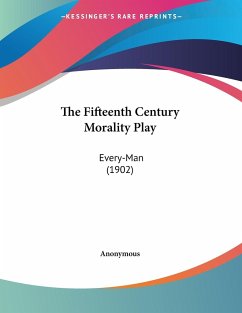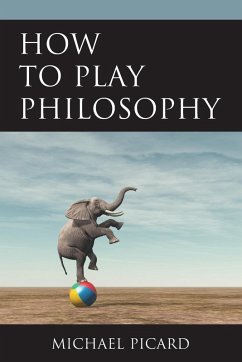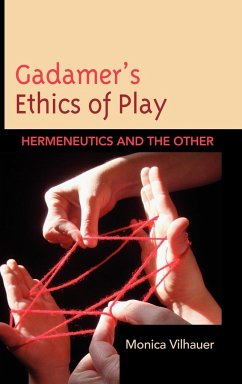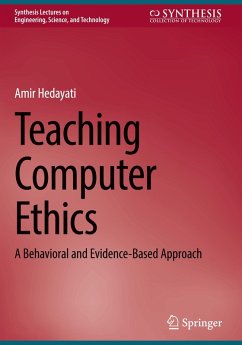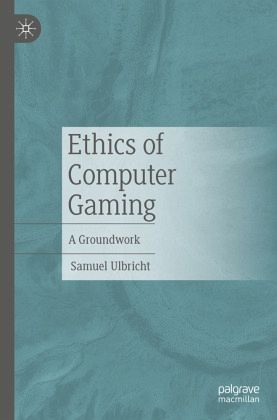
Ethics of Computer Gaming
A Groundwork

PAYBACK Punkte
0 °P sammeln!
Despite the increasing number of gamers worldwide, the moral classification of computer gaming marks an as yet unsolved riddle of philosophical ethics. In view of the explosive nature of the topic in everyday life (as seen in various debates about rampages), it is obvious that a differentiated professional clarification of the phenomenon is needed: Can playing computer games be immoral?To answer this question, the author first discusses what we do at all when we play computer games: What kind of action are we talking about? The second step is a moral classification that reveals whether (and if...
Despite the increasing number of gamers worldwide, the moral classification of computer gaming marks an as yet unsolved riddle of philosophical ethics. In view of the explosive nature of the topic in everyday life (as seen in various debates about rampages), it is obvious that a differentiated professional clarification of the phenomenon is needed: Can playing computer games be immoral?
To answer this question, the author first discusses what we do at all when we play computer games: What kind of action are we talking about? The second step is a moral classification that reveals whether (and if so, why) some cases of computer gaming are morally problematic. The considerations made here provide a fundamental insight into the normative dimension of computer gaming.
Samuel Ulbricht studied philosophy and German studies in Stuttgart, where he passed his first state examination. He completed his second state examination in Heidelberg. For his final thesison the ethics of computer gaming, he received the "Prize of the Friends of the University of Stuttgart". His current research focuses on normative differences in moral theories, problem areas in applied ethics, the aesthetics and ethics of computer games and the ethics of education and teaching. He currently works at the Johannes Gutenberg University of Mainz.
This book is a translation of the original German 1st edition Ethik des Computerspielens by Samuel Ulbricht, published by J.B. Metzler, an imprint of Springer-Verlag GmbH Germany, part of Springer Nature in 2020. The translation was done with the help of artificial intelligence (machine translation by the service DeepL.com). A subsequent human revision was done primarily in terms of content, so that the book will read stylistically differently from a conventional translation. Springer Nature works continuously to further the development of tools for the production of books and onthe related technologies to support the authors.
To answer this question, the author first discusses what we do at all when we play computer games: What kind of action are we talking about? The second step is a moral classification that reveals whether (and if so, why) some cases of computer gaming are morally problematic. The considerations made here provide a fundamental insight into the normative dimension of computer gaming.
Samuel Ulbricht studied philosophy and German studies in Stuttgart, where he passed his first state examination. He completed his second state examination in Heidelberg. For his final thesison the ethics of computer gaming, he received the "Prize of the Friends of the University of Stuttgart". His current research focuses on normative differences in moral theories, problem areas in applied ethics, the aesthetics and ethics of computer games and the ethics of education and teaching. He currently works at the Johannes Gutenberg University of Mainz.
This book is a translation of the original German 1st edition Ethik des Computerspielens by Samuel Ulbricht, published by J.B. Metzler, an imprint of Springer-Verlag GmbH Germany, part of Springer Nature in 2020. The translation was done with the help of artificial intelligence (machine translation by the service DeepL.com). A subsequent human revision was done primarily in terms of content, so that the book will read stylistically differently from a conventional translation. Springer Nature works continuously to further the development of tools for the production of books and onthe related technologies to support the authors.









